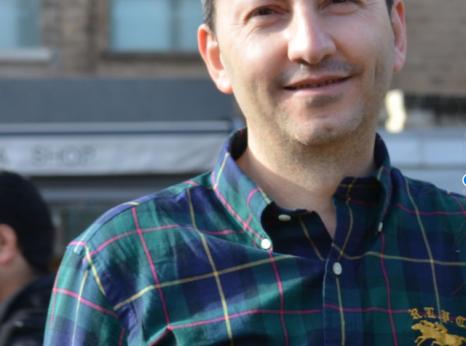Iran: Swedish-Iranian At Risk Of Retaliatory Execution

On 4 May 2022, Iranian state media outlets warned of Ahmadreza Djalali’s looming execution and stated that “in carrying out the death sentence of Ahmadreza Djalali, the government of Iran will… bar the government of Sweden from undertaking further actions similar to the detention of Hamid Nouri.” These articles were published just days after the prosecution authorities in Sweden sought a life sentence for Hamid Nouri for his alleged involvement in Iran’s 1988 prison massacres. Hamid Nouri’s trial is the first time a criminal case has been brought against an Iranian defendant abroad under the principle of universal jurisdiction and is also the first time, after decades of systemic impunity, that the prison massacres of 1988 are being addressed through a criminal trial. The trial has, therefore, attracted widespread public attention and shed unprecedented new light on the details of the 1988 prison massacres, which the Iranian authorities have for decades tried to conceal. Amnesty International’s analysis of the current circumstances surrounding Ahmadreza Djlalai’s arbitrary detention indicates that since at least late 2020, the Iranian authorities have been conditioning his fate on a “deal” with Sweden to exchange him for Hamid Nouri and/or with Belgium to swap him for a former Iranian diplomat, Asadollah Asadi. Asadollah Asadi was arrested in June 2018 and subsequently sentenced by a criminal court in Belgium to 20 years’ imprisonment in February 2021 for his role in a thwarted bomb attack at a 2018 rally in France. Hamid Nouri was arrested in Sweden in November 2019 under the principle of universal jurisdiction and tried for his alleged involvement in Iran’s 1988 prison massacres where thousands of political dissidents were forcibly disappeared and extrajudicially executed in secret. See here for further analysis and details, including how the developments in Ahmadreza Djalali’s case are taking place in a context where Iranian state officials and state media outlets consistently refer to the “importance” of detained dual and foreign nationals, and thus indicating that their detention may be used for gaining political, diplomatic and/or economic leverage.
Ahmadreza Djalali is a medical doctor and academic who was living in Sweden and was also a visiting professor in disaster medicine at the Vrije Universiteit Brussels. He was arbitrarily arrested on 26 April 2016 while on a business trip to Iran. He was held in Evin prison for seven months in section 209, which is under the control of the Ministry of Intelligence. He was held for three months in prolonged solitary confinement, without access to a lawyer. In a letter written from prison in August 2017, Ahmadreza Djalali said that during this period he was subjected to torture and other ill-treatment in order to force him to “confess” to being a spy. This included threats to execute him, kill or otherwise harm his children, who live in Sweden, and his mother, who lived in Iran and died in 2021. He has said that he was forced to read out “confessions” pre-written by his interrogators in front of a video camera. Ahmadreza Djalali denies the accusations against him and says they have been fabricated by the authorities. In the same letter, Ahmadreza Djalali wrote that he was held solely because of his refusal to use his academic ties in European institutions to spy for the Iranian authorities. On 17 December 2018 Iran’s state-run TV aired Ahmadreza Djalali’s “confessions” during a programme titled Axing the root, which used dramatic music, graphics and international news footage interspersed with Ahmadreza Djalali’s “confessions”, along with a voiceover presenting him as a “spy”. By extracting and airing these forced “confessions”, Iranian authorities violated Ahmadreza Djalali’s right to the presumption of innocence as well as the right not to be forced into incriminating himself. Ahmadreza Djalali has since said the broadcast “confessions” were filmed while he was being held in solitary confinement, without access to a lawyer. In November 2017, the UN Working Group on Arbitrary Detention called on Iran to release Ahmadreza Djalali immediately and accord him an enforceable right to compensation and other reparations. They found that his right to a fair trial had been violated so gravely “as to give Mr Djalali’s deprivation of liberty an arbitrary character”.
Iran, Sweden and Belgium are all parties to the International Convention Against the Taking of Hostages, which criminalizes acts of hostage-taking committed by state and non-state actors. The Convention defines hostage-taking as the detention of any person accompanied by threats to kill, injure or continue to detain them, unless certain conditions are met by a third party. There is no requirement under international law for the conditions attached to the release of a detainee to have been explicitly uttered for the act of detention to amount to the crime of hostage-taking. Circumstances of a case that demonstrate an implicit demand placed on a third party to do or refrain from doing something, may suffice to establish intent and to qualify the deprivation of liberty as an act of hostage-taking. Amnesty International opposes the death penalty in all cases without exception regardless of the nature or circumstances of the crime; guilt, innocence or other characteristics of the individual; or the method used by the state to carry out the execution. The death penalty violates the right to life as proclaimed in the Universal Declaration of Human Rights.